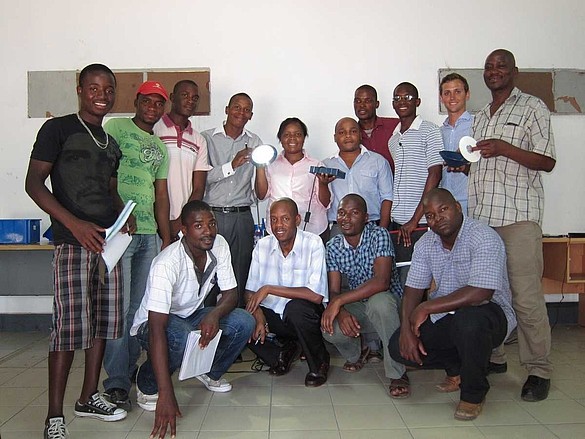Mozambique is a poor and sparsely populated African landlocked state that lacks electricity, especially in rural areas. Small solar systems for domestic use can help. It is even better if such systems can be produced in a simple and cost-effective manner in the country itself. Even the production of a solar-powered light source would be an important step forward for everyday life. Benjamin Seckinger’s task in his bachelor thesis was to realize a pilot plant for the production of such solar plants. Based on the product design, Seckinger designed the manufacturing process for the Ulm-based company Fosera, planned the establishment of the production facility and personally supervised the implementation in Maputo. In doing so, he considered the project holistically in accordance with the three-pillar model of sustainable development, according to which success only takes place if ecological, economic and social conditions are given equal consideration. In short, the interaction between the aspects of planet, profit and people should be right.
Seckinger has collected all the information needed to successfully build such a small business under local conditions. Within eight weeks, the production was started up. Important success factors included securing the production site against theft, training future employees and ensuring professional management. He also developed a two-phase business plan with realistic goals. In the short term, the aim was to start production cost-effectively and, in the second phase, to create the conditions for high production in the medium term in line with demand. Business models with a clear market perspective like this one are important for more small and medium-sized businesses to be established in poor developing countries.



